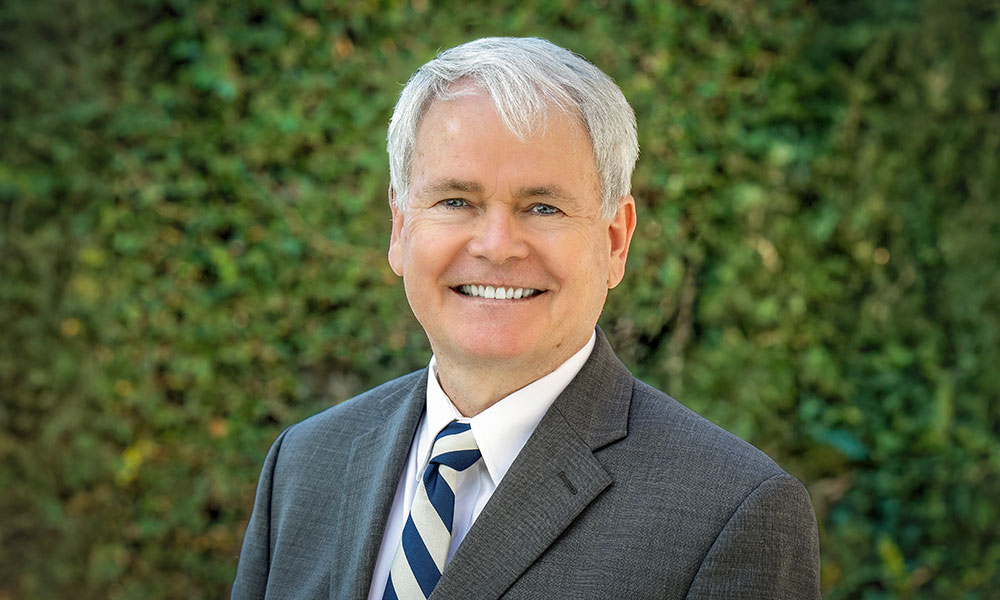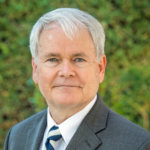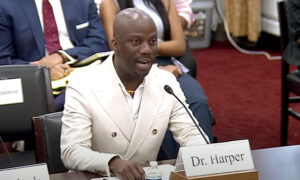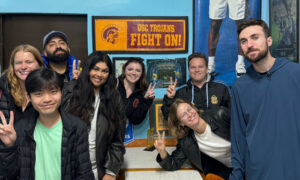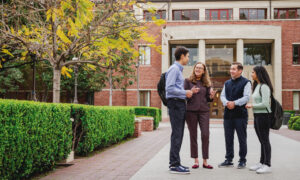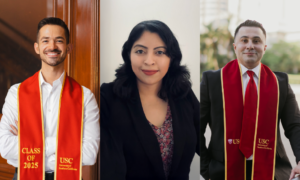Chris Boone, the new Dean of the USC Price School of Public Policy, is known for his passion for sustainability. But that’s hardly his only passion. When he isn’t on USC’s campus, he’s often looking at the stars, snapping photos of celestial objects with his astrophotography camera.
One “reason why I love astrophotography is it gives me perspective,” Boone said. “It makes me realize that we’re all made of stardust and we’ll eventually return to stardust. And sometimes the little daily problems pale in comparison to the scale and the magnitude of not just our galaxy, but galaxies beyond.”
Boone also has a passion and a plan for supporting students. He discussed those topics, as well as his vision for the USC Price School, in a wide-ranging interview. His answers were lightly edited for length and clarity.
What attracted you to the Price School?
I was drawn to the USC Price School because of its interdisciplinary focus and approaches in addressing and solving real world, impactful issues on policy, ranging from health to transportation, governance, real estate, and planning. And these are things that, increasingly, we’re going to need to address if we’re going to live sustainably in Los Angeles and in California, as well as thinking about our global impacts and our place in the globe.
What is your vision for Price? What are some of your big goals?
My goal for Price is to take the extraordinary assets of the school that exist already in the faculty, staff and students and think about themes that can integrate across the existing four departments in ways that excite and energize people, both within Price, across USC, and with our external partners.
One of those that I’ll be addressing in the near future is thinking about how we can make Los Angeles the most sustainable metropolitan region in the world. In order to do that, we need all the expertise at USC Price. We need to work with our partners across campus and the other schools and colleges. And we especially need to be working with our partners outside the university in order to achieve that goal.
Do you plan to increase Price’s focus on sustainability?
I do plan to increase the focus of USC Price on sustainability. Sustainability is really one of the existential issues that we’re going to be facing over the next decade, certainly the next century. And that is, how do we improve human well-being for present and future generations in fair and just ways, while stewarding the life systems on which we all depend?
An institution like USC has the talent to be able to do that, but I would also say it has the responsibility for undertaking these larger and bigger questions. And the Price School certainly has that commitment to asking and answering challenging questions.
Also, we’re hearing from students that this is something that they are personally concerned with and want to engage with. So, I think the time is right for us to tackle these big sustainability issues.
How do you see your role in supporting students?
I am very supportive of students because student success is our core mission. Their success is our success.
One of the metaphors I like to use is that students are almost like an indicator species in an ecosystem. Looking after an indicator species is ethically a responsible thing to do, but it usually tells us something about the health of the overall ecosystem. For instance, there was controversy many decades ago about how loggers were affecting spotted owls in the northwest. The idea behind the spotted owl as an indicator species was that if it was present and it was thriving, that meant the ecosystem that surrounded it was thriving as well.
When our students are thriving, that means our faculty and staff are thriving, that means the institution is thriving. I’m going to do whatever I can and make decisions that start with the question: Will this actually improve the well-being of our students and their success?
Do you have plans to increase the amount of student research?
One of my priorities is to increase opportunities for student research, especially undergraduate research. One of the programs I created at my former institution was an undergraduate research experience, and we did that for a number of reasons.
One, I think everyone can be involved in knowledge production. We shouldn’t just be in receiver mode. Especially in this century, we’ve evolved to a point where universities recognize that students are not just recipients of knowledge, but they can actually generate knowledge themselves.
It’s also a set of skills. It’s transferable to any kind of career. Skills like: How do you ask interesting questions? How do you gather the right kind of evidence? How do you synthesize that information or analyze that information in ways that make sense? And then how do you actually communicate that information in ways that people care about?
The other reason is that when students are engaged in undergraduate research, they also tend to feel more connected to the institution. And that has very real consequences. There’s plenty of studies that demonstrate that if students are engaged in faculty-led research as undergraduates, they tend to be retained at much higher rates than students who don’t.
It’s also a really important recruiting tool. I want to bring more students to USC and specifically to Price, and if we give them the opportunity to participate in faculty-led research where they are contributing again to knowledge, I think that will be a really attractive proposition.
What do you do for fun?
One of my newest hobbies is astrophotography. I’m very interested in taking images of deep space objects, mostly in the Milky Way galaxy. But I’ve also taken images of other galaxies, including our nearest neighbor, Andromeda. What’s interesting about Andromeda is that when I capture the light in the lens of my camera, it’s 2.4 million years old. So, it’s really like looking into the deep past.
The other reason why I love astrophotography is it gives me perspective. It makes me realize that we’re all made of stardust and we’ll eventually return to become stardust. And sometimes the little daily problems pale in comparison to the scale and the magnitude of not just our galaxy, but galaxies beyond.
It’s a humbling experience, let’s put it that way. But it’s also beautiful. I am always astonished by the images you can capture with a camera and a lens using long exposures to create things that are unbelievably beautiful to look at.
